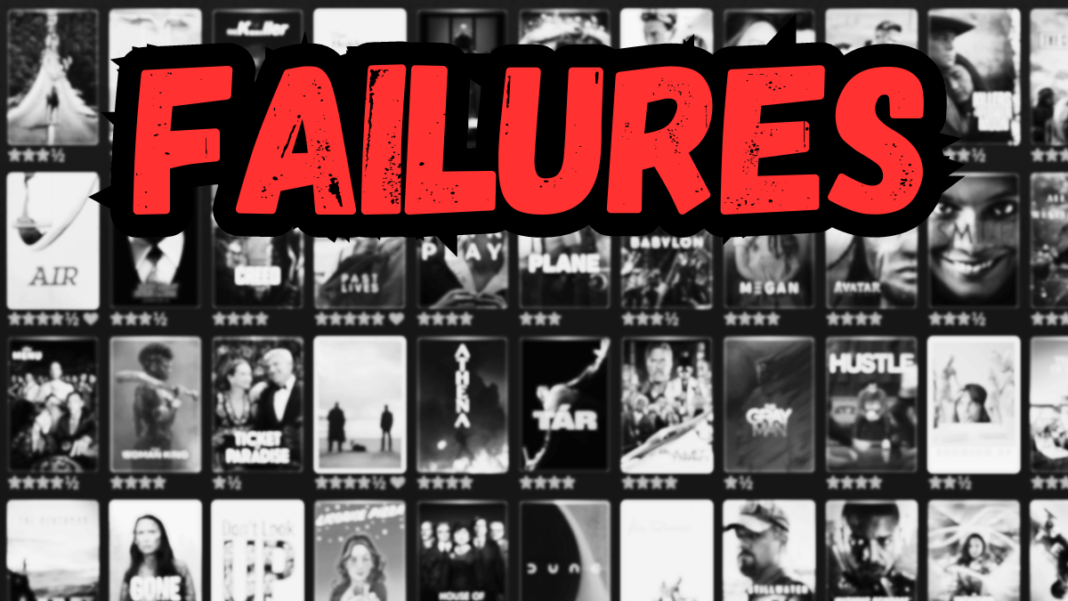In the modern era, where most movies are now regarded merely as “content,” an overwhelming majority of mainstream productions fail to deliver meaningful or enjoyable experiences. Chris Gore, founder of Film Threat and a prominent filmmaker, argues that 99% of today’s mainstream films are subpar. The crux of the problem lies in how major studios prioritize box-ticking over genuine storytelling, resulting in a homogenized, lackluster output that neither entertains nor resonates with audiences.
The Essence of Storytelling Lost
In the past, films were crafted with a strong emphasis on storytelling. Filmmakers like George Lucas, Steven Spielberg, and Francis Ford Coppola revolutionized the industry by creating original, captivating narratives that resonated with audiences. Today, however, the essence of storytelling seems to be lost. Studios focus more on producing marketable content rather than compelling stories. This shift in priorities has led to a significant decline in the quality of mainstream movies.
Shifting Landscape of Hollywood:
https://www.premiumbeat.com/blog/golden-age-of-hollywood/ (This article explores the changes in Hollywood from its “golden age” to the present day)
Francis Ford Coppola on Storytelling:
https://www.francisfordcoppolawinery.com/visit/ (Website for Coppola’s film school, emphasizing storytelling)
The Rise of Corporate Influence
The increasing influence of corporate entities in Hollywood has further contributed to the decline of mainstream cinema. Decisions that were once made by visionary filmmakers are now in the hands of corporate executives who prioritize profits over creativity. This has resulted in a formulaic approach to filmmaking, where studios produce movies based on market research and trends rather than original ideas. The result is a plethora of films that feel manufactured and devoid of passion.
From Star Wars to Justice League: How Hollywood is Failing Fans

The mishandling of beloved franchises like Star Wars and Justice League highlights a broader issue within Hollywood. Studios often make decisions that disregard fan expectations and the essence of the original material. The failure to bring Han, Luke, and Leia together on screen, despite having the opportunity, and the botched production of Zack Snyder’s vision for Justice League exemplify what Gore describes as “studio malpractice.” These failures are symptomatic of a system more concerned with corporate interests than delivering quality entertainment.
Star Wars: A Case of Missed Opportunities
The Star Wars franchise, once a beacon of innovation and creativity, has become a prime example of Hollywood’s current failings. The recent sequels, particularly The Rise of Skywalker, have been criticized for their lack of coherent storytelling and disregard for established characters. The decision not to reunite the original trio of Han, Luke, and Leia on screen is seen as a monumental oversight that alienated long-time fans. This failure to honor the legacy of the franchise and its characters is indicative of a broader trend in Hollywood where corporate agendas overshadow creative vision.
Critique of the Star Wars Sequels:
https://www.theatlantic.com/entertainment/archive/2017/12/the-last-jedi-may-be-the-best-star-wars-movie-since-the-empire-strikes-back/548363/ (Critique of The Last Jedi, part of the Star Wars sequel trilogy)
Legacy Sequels and Fan Discontent:
https://www.reddit.com/r/StarWars/comments/7y2xxp/why_do_people_hate_the_last_jedi/ (Discusses fan discontent with legacy sequels)
The Justice League Debacle
Similarly, the Justice League film highlights the detrimental impact of studio interference. Zack Snyder’s original vision for the movie was significantly altered by the studio, resulting in a disjointed and unsatisfying final product. The subsequent release of the Snyder Cut showcased what could have been, emphasizing the stark contrast between a filmmaker’s vision and the compromised studio version. This incident underscores the need for studios to trust and support the creative process rather than imposing their own agendas.
Fan Theories and Franchise Expectations:
https://www.youtube.com/watch?v=KExCT20vD-s (Discusses fan theories surrounding Star Wars)
The Snyder Cut Controversy:
https://en.wikipedia.org/wiki/Zack_Snyder%27s_Justice_League (Details the controversy surrounding the Justice League film and the Snyder Cut)
Studio System Breakdown: Why Most Modern Movies Disappoint
Hollywood’s current state is characterized by an overreliance on committees and an obsession with catering to a global market, particularly China, at the expense of creative integrity. This factory-like approach to filmmaking stifles originality and results in films that feel formulaic and uninspired. The Star Wars sequels and the Justice League debacle are prime examples of how studio interference and a focus on international appeal have diluted the quality of mainstream cinema.
The Committee Approach
The committee approach to filmmaking involves numerous executives and stakeholders providing input on a film’s production. While this can sometimes lead to positive outcomes, more often than not, it results in a diluted final product. The need to please multiple parties often leads to compromises that undermine the original vision of the filmmaker. This approach can stifle creativity and result in movies that lack a clear and compelling narrative.
Catering to the Global Market
The growing importance of the global market, particularly China, has significantly influenced Hollywood’s approach to filmmaking. Studios now prioritize creating films that will appeal to international audiences, often at the expense of cultural specificity and originality. This has led to a trend of producing movies that are designed to be universally marketable rather than authentically engaging. The focus on pleasing a global audience can result in bland, homogenized films that fail to resonate deeply with any particular demographic.
The Rise of the Chinese Film Market:
https://www.hollywoodreporter.com/business/business-news/china-movie-industry-xi-jinping-1235243367/ (Discusses the rise of the Chinese film market)
Hollywood’s Global Expansion and Cultural Homogenization:
https://www.nytimes.com/2024/03/01/opinion/oscars-hollywood-extinction-event.html (Examines the impact of Hollywood’s global expansion on cultural homogenization)
The Decline of Blockbuster Films: A Critique of Hollywood’s Failures

Blockbuster films, once the pinnacle of cinematic achievement, are increasingly failing to captivate audiences. Gore suggests that the reasons for this decline include a lack of visionary studio executives, an overemphasis on marketing, and a trend towards superficial inclusivity rather than authentic character development. This critique underscores the need for studios to prioritize storytelling and fan satisfaction over political correctness and marketability.
The Role of Visionary Executives
The decline of visionary studio executives has had a significant impact on the quality of blockbuster films. In the past, executives like Alan Ladd Jr., who greenlit Star Wars, played a crucial role in supporting and protecting creative visions. Today, however, the industry is dominated by executives who prioritize financial returns over artistic integrity. This shift has led to a decline in the quality of blockbuster films, as innovative ideas are often overlooked in favor of safer, more marketable options.
The Changing Landscape of Blockbuster Films:
https://www.imdb.com/title/tt7657566/ (Discusses the decline of traditional blockbuster films)
The Rise of Superhero Films and Franchise Fatigue:
https://caplinnews.fiu.edu/superhero-fatigue-movie-marvel-studios-dc-comics/ (Discusses the concept of superhero movie fatigue)
The Overemphasis on Marketing
The emphasis on marketing in modern Hollywood has also contributed to the decline of blockbuster films. Studios now spend enormous amounts of money on marketing campaigns designed to generate hype and attract audiences. While effective marketing can certainly help a film succeed, it cannot compensate for a lack of substance. The focus on marketing often leads to films that are heavily promoted but fail to deliver on their promises. The disparity between the marketing and the actual product can result in disappointed audiences and tarnished reputations for studios.
Superficial Inclusivity
Another issue plaguing modern blockbuster films is the trend towards superficial inclusivity. While diversity and representation are important, they should not come at the expense of authentic storytelling and character development. The tendency to shoehorn in diverse characters without fully developing them can result in clichéd and uninspired narratives. Authentic inclusivity involves creating well-rounded, complex characters that contribute meaningfully to the story. Superficial inclusivity, on the other hand, can feel tokenistic and detract from the overall quality of the film.
Content Over Quality: The Downfall of Mainstream Cinema

The transformation of movies into “content” for streaming platforms has further eroded the quality of mainstream cinema. Studios churn out films with the primary goal of filling digital libraries rather than creating memorable, impactful stories. This content-driven model prioritizes quantity over quality, leading to a glut of mediocre films that fail to leave a lasting impression.
The Rise of Streaming Services:
https://www.vox.com/streaming (Provides an overview of the “streaming wars”)
The Impact of Streaming on Film Quality:
https://www.theatlantic.com/technology/archive/2023/09/streaming-services-netflix-max-cost/675264/ (Explores the potential negative impact of streaming on film quality)
The Rise of Streaming Platforms
The rise of streaming platforms like Netflix, Amazon Prime, and Disney+ has revolutionized the way we consume media. While these platforms have made content more accessible, they have also contributed to a decline in the quality of mainstream cinema. The need to constantly produce new content to keep subscribers engaged has led to a focus on quantity over quality. This has resulted in a flood of mediocre films that are quickly forgotten.
The Impact on Filmmaking
The content-driven model of streaming platforms has also impacted the filmmaking process. Filmmakers are now under pressure to produce content quickly and efficiently, often at the expense of creativity and artistic integrity. The need to meet tight production schedules and budgets can result in rushed, poorly executed films that lack depth and originality. This shift in priorities has had a detrimental effect on the overall quality of mainstream cinema.
Indie Films vs. Blockbusters: Why Smaller Movies are Winning Hearts

In contrast to the disappointing output of major studios, independent films often succeed in delivering unique, heartfelt stories despite limited resources. Indie filmmakers operate without the constraints of corporate oversight, allowing for greater creative freedom. This often results in films that, while modest in budget, are rich in authenticity and emotional depth. Gore’s admiration for indie films stems from their ability to connect with audiences on a personal level, a quality sorely lacking in most blockbusters.
The Appeal of Indie Films
The appeal of indie films lies in their authenticity and creativity. Independent filmmakers are not bound by the same constraints as their mainstream counterparts, allowing them to take risks and explore unconventional narratives. This freedom often results in films that are more original and emotionally resonant. Indie films may lack the budget and resources of blockbusters, but they make up for it with passion and creativity.
The Advantages of Independent Filmmaking:
https://filmmakeriq.com/ (Discusses the advantages of independent filmmaking)
The Indie Spirit Awards:
https://www.filmindependent.org/spirit-awards/ (Website for the Indie Spirit Awards, recognizing independent films)
The Power of Authentic Storytelling
Authentic storytelling is at the heart of what makes indie films so compelling. Independent filmmakers often draw from personal experiences and unique perspectives, resulting in stories that feel genuine and relatable. This authenticity can create a deep emotional connection with audiences, making indie films more impactful than their mainstream counterparts. The power of authentic storytelling lies in its ability to resonate on a personal level, something that is often missing in the formulaic approach of blockbuster films.
Hollywood’s Biggest Blunders: A Look at Mishandled Franchises

The mishandling of major franchises such as Star Wars and Justice League represents some of Hollywood’s most glaring failures. Poor creative decisions, a lack of cohesive vision, and an overemphasis on quick financial returns have led to movies that not only disappoint fans but also tarnish the legacy of iconic series. These blunders highlight a critical need for Hollywood to re-evaluate its approach to franchise filmmaking.
The Consequences of Poor Creative Decisions
Poor creative decisions can have a lasting impact on a franchise’s reputation and fanbase. The decision to drastically alter Zack Snyder’s vision for Justice League, for example, resulted in a film that was widely criticized and ultimately failed to satisfy fans. Similarly, the inconsistent storytelling and character arcs in the Star Wars sequels have left many fans disillusioned. These creative missteps can tarnish the legacy of beloved franchises and alienate loyal audiences.
The Lack of Cohesive Vision
A lack of cohesive vision is another major issue in the mishandling of franchises. Successful franchises require a clear and consistent vision that guides the storytelling and character development. When studios fail to establish and maintain this vision, the result is often a disjointed and unsatisfying narrative. The Star Wars sequels, for example, suffered from a lack of cohesive vision, with each installment feeling disconnected from the others. This inconsistency can lead to a fragmented and unsatisfying viewing experience.
The Overemphasis on Financial Returns
The overemphasis on quick financial returns is a major factor in the mishandling of franchises. Studios often prioritize short-term profits over long-term success, leading to rushed productions and compromised creative decisions. The desire to capitalize on the popularity of a franchise can result in movies that are released before they are ready, ultimately disappointing fans and damaging the brand. A more thoughtful and measured approach to franchise filmmaking is necessary to ensure the long-term success and integrity of these beloved series.
Franchise Revivals and Reboots:
https://www.theringer.com/movies/2021/6/2/22464115/childhood-movie-reboots-origin-stories-make-your-own (Discusses the trend of Hollywood reboots)
Balancing Nostalgia with Innovation:
https://www.newyorker.com/magazine/2023/11/27/yesterday-a-new-history-of-nostalgia-tobias-becker-book-review (Examines Hollywood’s reliance on nostalgia)
Studio Malpractice: How Hollywood is Alienating Fans
The concept of “studio malpractice” encapsulates the detrimental impact of poor executive decisions on beloved franchises. By ignoring the desires of dedicated fan bases and prioritizing bureaucratic agendas, studios alienate the very audiences they aim to attract. The resulting films often lack the passion and creativity that made the originals so beloved, leading to widespread dissatisfaction and a fractured fan community.
The Importance of Listening to Fans
Listening to fans is crucial for the success of any franchise. Dedicated fan bases are passionate about the characters and stories they love, and their feedback can provide valuable insights for filmmakers. When studios ignore the desires of their fans, they risk alienating the very audience they rely on for success. The failure to bring Han, Luke, and Leia together in the Star Wars sequels is a prime example of how disregarding fan expectations can lead to widespread disappointment.
The Impact of Bureaucratic Agendas
Bureaucratic agendas can stifle creativity and result in films that feel impersonal and uninspired. Studio executives often impose their own agendas on filmmakers, prioritizing marketability and financial returns over artistic integrity. This can lead to movies that lack the passion and originality that made the originals so beloved. The resulting films often feel like products of a corporate machine rather than genuine works of art, leading to widespread dissatisfaction among audiences.
The Need for Passion and Creativity
Passion and creativity are essential components of successful filmmaking. When studios prioritize bureaucratic agendas over these qualities, the result is often a film that feels hollow and uninspired. Fans can sense when a movie is made with passion and creativity, and they respond positively to films that reflect these qualities. To regain the trust and admiration of audiences, Hollywood must prioritize passion and creativity in the filmmaking process.
Fan Disenfranchisement and Hollywood Decision-Making:
https://www.indiewire.com/ (Discusses the disconnect between Hollywood and audiences)
The Importance of Creative Freedom in Filmmaking:
https://filmmakeriq.com/ (Explains the importance of creative freedom in filmmaking)
The Rise of Mediocrity: Why Today’s Blockbusters Often Fall Flat

The prevalence of mediocre blockbusters can be attributed to Hollywood’s formulaic approach to filmmaking. Studios rely heavily on established tropes and clichés, such as predictable story arcs and superficial character development, resulting in films that feel uninspired and repetitive. The lack of originality and innovation in mainstream cinema is a significant factor in the overall decline of movie quality.
The Formulaic Approach
Hollywood’s formulaic approach to filmmaking involves relying on established tropes and clichés to create movies that are deemed “safe” and marketable. This approach often results in films that feel predictable and lack originality. Audiences are increasingly frustrated with movies that follow the same tired formulas, craving fresh and innovative storytelling instead. The reliance on formulaic storytelling is a major factor in the rise of mediocrity in modern blockbusters.
Predictable Story Arcs
Predictable story arcs are another issue plaguing modern blockbusters. Many films follow the same basic structure, with little variation or innovation. This predictability can lead to a sense of monotony and boredom among audiences. To recapture the excitement and engagement of viewers, Hollywood must embrace more diverse and unpredictable storytelling techniques.
Superficial Character Development
Superficial character development is a common problem in modern blockbusters. Characters are often reduced to clichés and stereotypes, lacking depth and complexity. This superficial approach to character development can result in films that feel shallow and unengaging. Audiences are increasingly looking for films with well-rounded, complex characters that they can relate to and invest in emotionally. To improve the quality of mainstream cinema, Hollywood must prioritize authentic and meaningful character development.
Formulaic Storytelling in Blockbusters:
https://observer.com/2018/05/the-two-crucial-filmmaking-elements-causing-all-your-movie-feuds/ (Discusses the concept of formulaic storytelling)
The Importance of Originality in Cinema:
https://medium.com/@scripthollywood/the-importance-to-be-original-in-cinema-4f74685d7f39 (Examines the importance of originality in film)
Reclaiming Cinema: The Case for More Original and Visionary Films

To restore the glory of cinema, Hollywood must embrace originality and visionary storytelling. This involves taking risks on new ideas and nurturing creative talent without imposing restrictive corporate agendas. By championing films that offer fresh perspectives and authentic narratives, the industry can regain the trust and admiration of audiences worldwide. Gore’s call for more originality in filmmaking is a plea for a return to the passion and artistry that once defined Hollywood.
Embracing Originality
Embracing originality is crucial for the revitalization of mainstream cinema. Hollywood must be willing to take risks on new and innovative ideas rather than relying on established formulas and franchises. This involves supporting visionary filmmakers and providing them with the creative freedom to explore unconventional narratives. By championing originality, Hollywood can produce films that captivate and inspire audiences.
Nurturing Creative Talent
Nurturing creative talent is essential for the production of high-quality films. Hollywood must prioritize the development and support of filmmakers with unique perspectives and artistic visions. This involves providing opportunities for emerging talent and fostering an environment that encourages creativity and experimentation. By investing in creative talent, Hollywood can produce films that are both artistically and commercially successful.
Reducing Corporate Agendas
Reducing the influence of corporate agendas is necessary for the improvement of mainstream cinema. Studios must prioritize artistic integrity over financial returns and marketability. This involves trusting and supporting the creative process rather than imposing restrictive agendas on filmmakers. By reducing corporate interference, Hollywood can produce films that reflect genuine passion and creativity.
Fostering Fresh Perspectives
Fostering fresh perspectives is key to the revitalization of mainstream cinema. Hollywood must embrace diverse voices and stories, providing opportunities for filmmakers from underrepresented backgrounds. This diversity of perspectives can result in films that are more inclusive and relatable, resonating with a broader audience. By championing fresh perspectives, Hollywood can produce films that reflect the richness and complexity of the human experience.
Rebuilding Trust with Audiences
Rebuilding trust with audiences is crucial for the long-term success of Hollywood. Studios must prioritize the desires and expectations of their fans, producing films that reflect genuine passion and creativity. By listening to and respecting their audience, Hollywood can regain the trust and admiration of moviegoers worldwide. This involves producing films that are not only entertaining but also meaningful and impactful.
Conclusion
In conclusion, the decline of mainstream cinema can be attributed to a variety of factors, including the rise of corporate influence, the mishandling of beloved franchises, and the prevalence of formulaic storytelling. To restore the glory of cinema, Hollywood must embrace originality and visionary storytelling, nurturing creative talent and reducing corporate agendas. By championing fresh perspectives and authentic narratives, the industry can regain the trust and admiration of audiences worldwide. Chris Gore’s critique of modern Hollywood serves as a call to action for the industry to prioritize passion, creativity, and artistic integrity in the filmmaking process.


